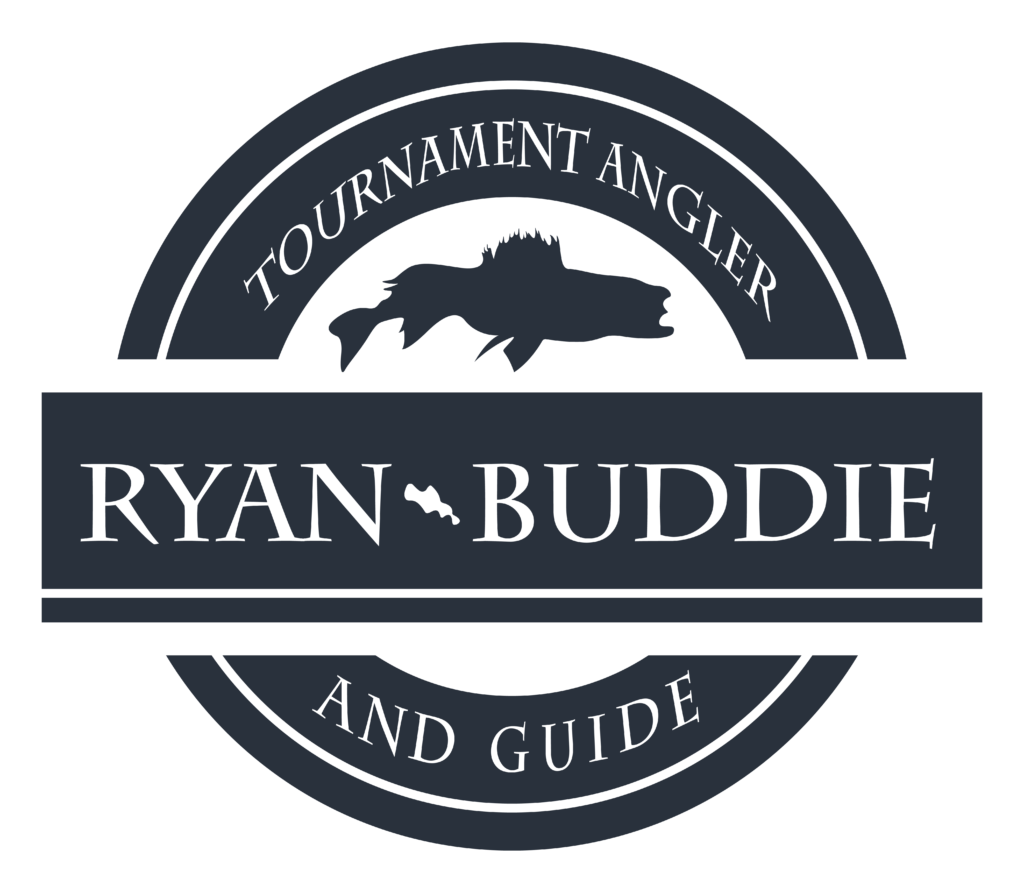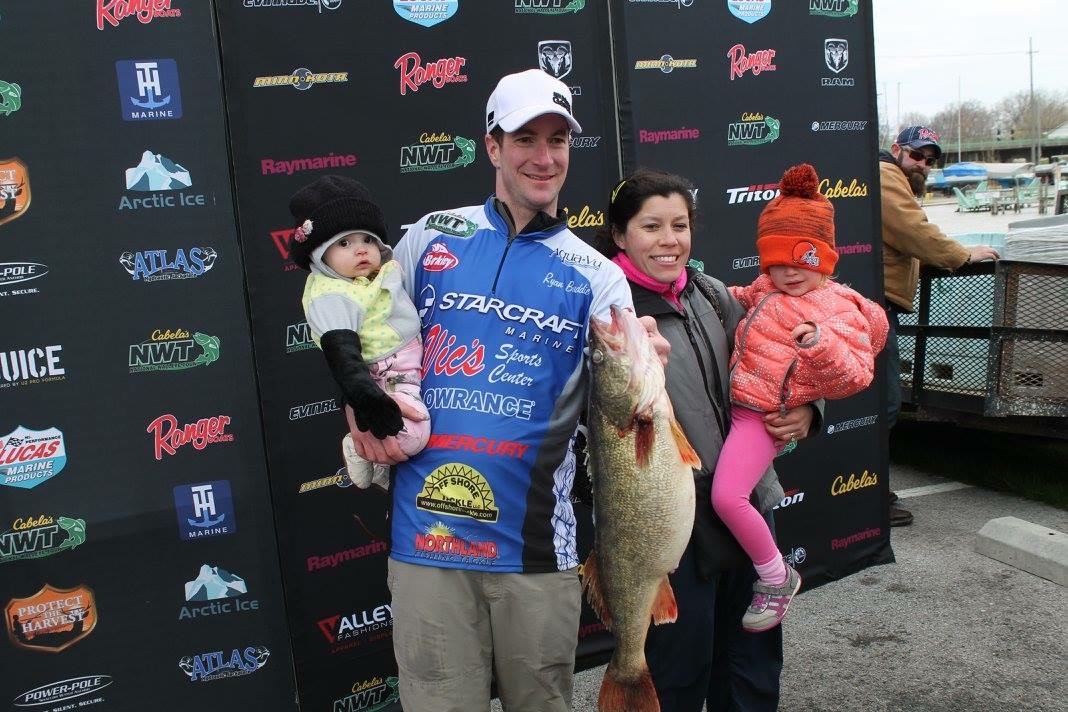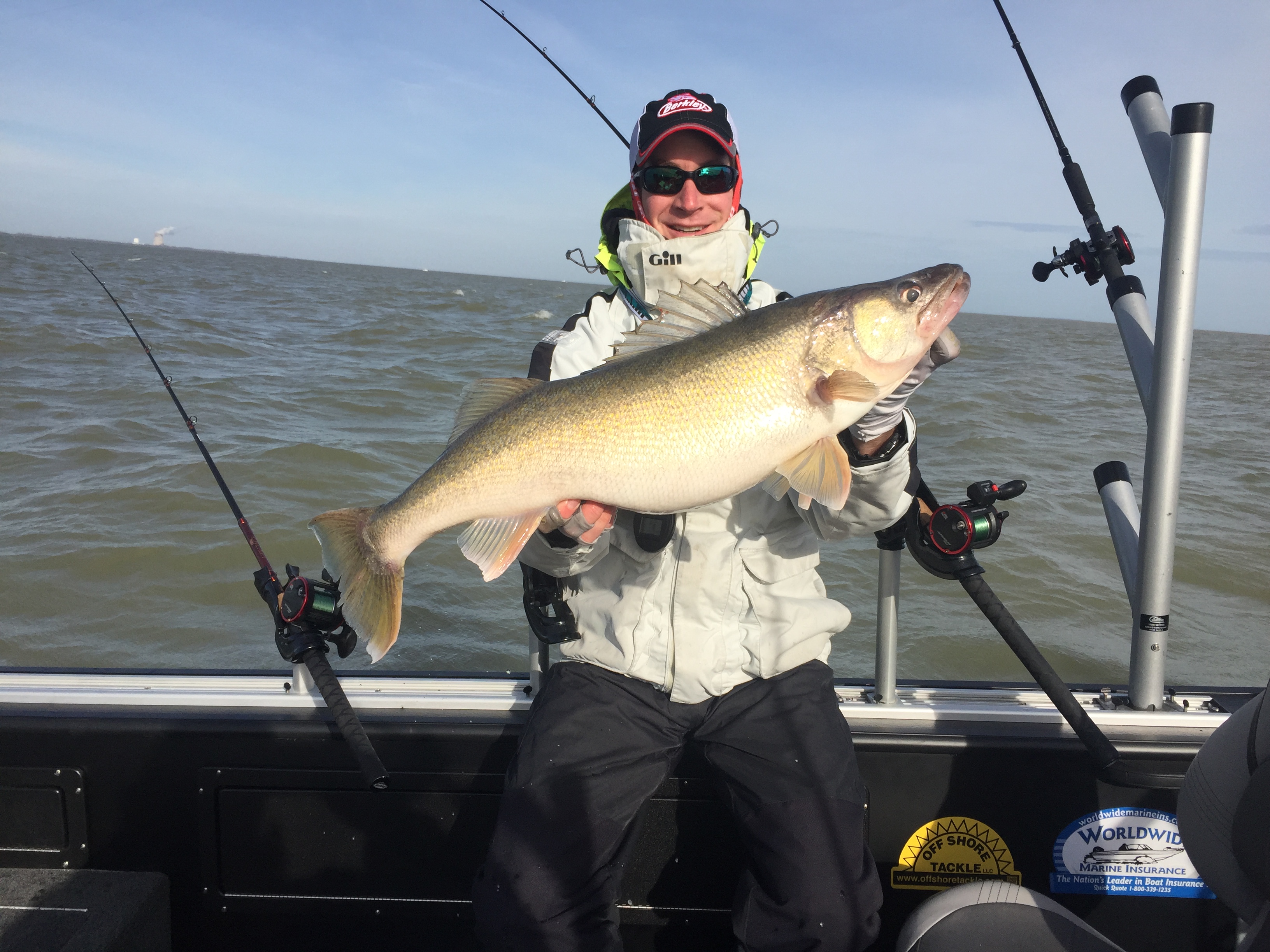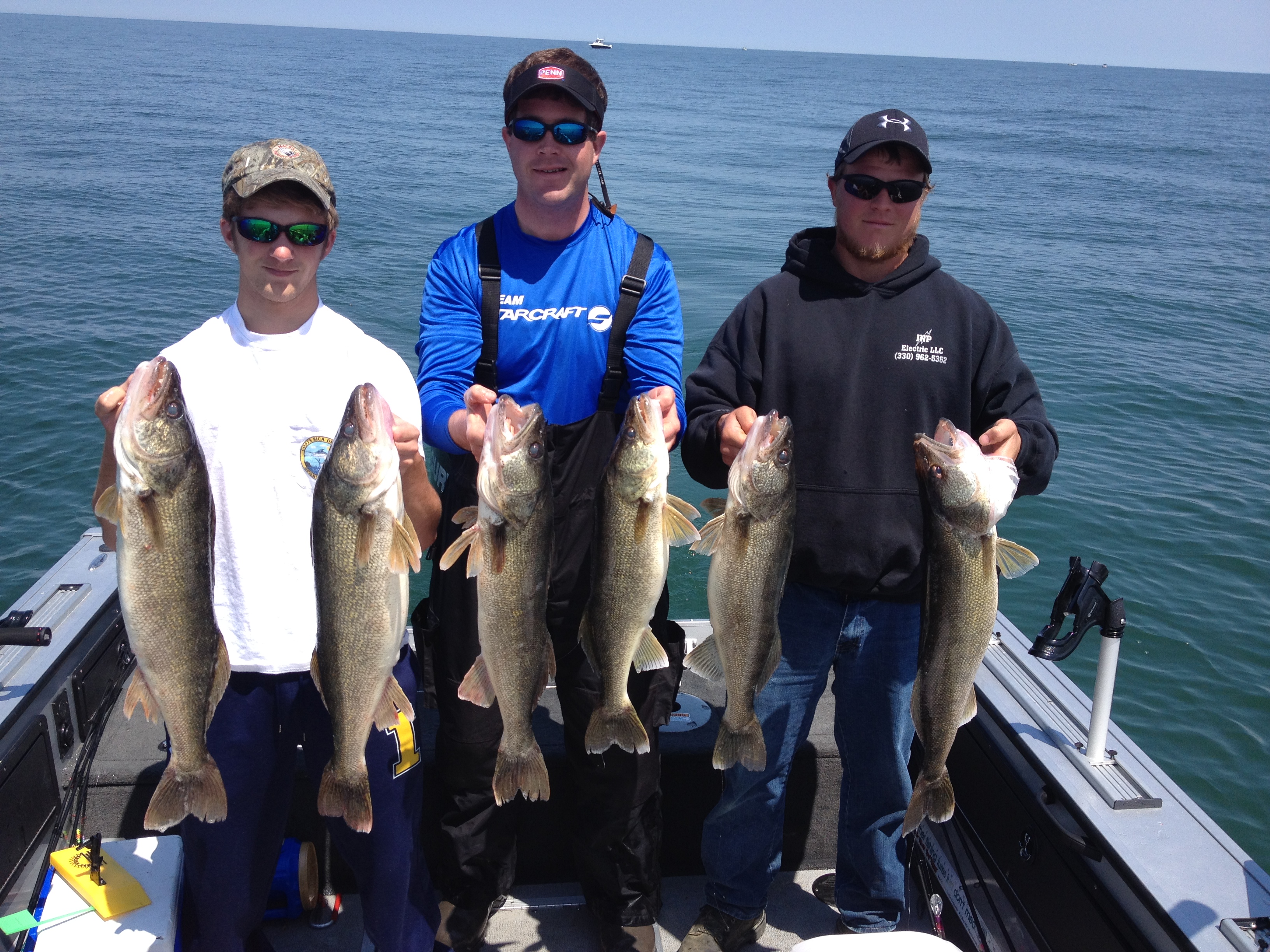Tournament Fishing… It all started for me more than a decade ago in 2007 when a buddy of mine asked me if I wanted to be in his local club tournament on Erie. I fished all the time; long days, crappy conditions, weeks at a time, it didn’t matter… If I wasn’t working, I was fishing. I fished for the love of the sport, nothing else. For whatever reason, I had never really thought about tournament fishing until my buddy asked me to be in the tourney, but the thought of competing at something that I loved that much just made too much sense.
I didn’t really know what too expect. I figured I would probably be middle of the pack at best. After all, I didn’t have the experience, charter captains status, or fancy boat and equipment. All of which were things I assumed would correlate to being a successful tournament angler. So the week of the tournament came, and I think I practiced or ‘pre-fished’ as we call it for 5 days prior to an event with 30 boats and a $100 entrance fee. I was probably going to fish anyways those days, so I might as well just be ‘practice’.
Tournament day came, and I was amped up ready to go. All the big outboards, fancy planer board masts, downriggers, and rod holder set ups that I knew I was competing against were kind of intimidating. So I did what I could to give us the best chance, I was meticulous about gear prep (new line, sharp hooks, fresh snells, prefect plump crawlers) and I had a weeks worth of prep on the water. All the boats bunched together just outside of the Rocky River and it was a shotgun start. The gun went off, and all 30 of us went racing off to our spots. I knew at that moment that this was for me, I wanted to be a tournament angler, no doubt about it. As for the day, we caught fish, nothing that I thought was special, a seeming average day. When we came in, much to my surprise, we got 2nd place! Wow, maybe we are a little better than I thought, maybe we can compete?
So then it started, another small club tourney after another. More success led to the Lake Erie Walleye Trail and a couple more top 5 finishes. I started making contacts and in 2010 I really dove headfirst in to fish a full circuit of the Lake Erie Walleye Trail and on a national level, the Masters Walleye Circuit. It was kind of intimidating, but just like in that first tournament, I just kept my head down and fished and prepped as hard as I could. I had heard a quote back in the day that stuck with me: “Luck is when preparation meets opportunity”. We got lucky that year, and ending up winning Team of the Year in both circuits. I have learned so much since then, and am a much better angler now in many ways, but sometimes I think back to then and wonder how I had so much success as a new tournament angler? It was the preparation, time on the water, and great network of teammates that I had made. To any of you new up and coming tournament anglers, I can’t over emphasize this enough… get on the water, find good people to work with, and be prepared.
So a lot had changed since I first got into the tournament game, both personally for me and industry wide. I have a family, a beautiful wife and 2 precious little girls that I love and adore and support. Quite different that the 20 something year old ‘kid’ that just ‘sent it’ each and every day he had a chance (which was a lot).
As for the industry, the Pro-Am tournaments like the FLW and former AIM pro-am’s are gone and now replaced with the National Walleye Tour. In my view, its a great thing. In the past the FLW was pretty bad about favoritism of exposure to the tours sponsors. In other words, if you weren’t a Ranger Evinrude guy and had one of their 10 title sponsors, you weren’t getting any exposure. This really discouraged a lot of the top pros from fishing it. The NWT now is really good about that, from a Pro-Am format perspective, it really is a collaboration of the best of the best, and that’s what we want. You compete in an NWT and win, you were the best damn walleye angler in the planet for those couple days, no doubt about it. The other thing I like about the NWT is that its NOT a ‘zero’ entrance fee championship. The problem with zero entrance fee championships like a lot of former Pro-Ams did is that ALOT of the money from the qualifier events goes to the championship pot. This makes it hard for guys like me in the past, who may not be able to fish the full tour, to justify cherry picking in a couple events here and there. I really believe that it bumps the size of the fields and the results show, pretty much every tournament is 100+ boats with great payouts. Way to go NWT, keep it up.
So now lets move on to the Team format tournaments, where you select your own partner, and you together are partners in the boat for the tournament, as opposed to the Pro-Am I described above where each day a Pro matched up with a random Amateur for each day of the tournament. These Team Format tournaments are a great way to go and learn different bodies of water and techniques. Select a partner that compliments your skills and learn. It’s also nice because you can split costs with your partner and not take as bad of a financial hit as you would in a Pro-Am if you don’t do well. Or, you could be like me early on and not have a true tournament boat, but hop in with a buddy who does and still compete at a top level. I like the Master Walleye Circuit because of the schedule and the name. They travel to a lot of great bodies of water and usually do a good job of hitting the right port and body of water at the right time of year, so we don’t have to make ridiculously long runs to the fish (something the NWT needs to work on). I get it, tournaments get paid by cities to show up in town a certain time of year, whichever city ponies up the most gets the tournament, that money trickles down to us, if the circuits is doing well, we do well, but damn I never want to have to do a minimum 55-120 mile one way run. Ehhhhhemmmm, Sakakawea… Rant on that over. The MWC, the Masters Walleye Circuit, it just sounds cool. To win the MWC World Walleye Championship is cool, regardless of the payouts. In my opinion, this was a big flaw of the AIM. The Anglers Insight Marketing Title just doesn’t have the same ring to it. However, I do like the Catch, Record, Release format of the AIM, especially on some of these no cull, slot limit areas. I like how we bring the fish in and release at most places, but in a place like Mill Lacs or Lake of the Woods with a huge slot, the luck factor to catch an over really comes into play too much. I’m glad to see the AIM having success with there smaller regional style tournaments. Back to the MWC for a second, its tough to see the numbers way down. I loved the MWC; cutt my teeth in it, and learned so much from it. The money is way down, and so are the numbers. I’m not gonna go too much into the why, but part of it is the exposure it gets, not much it seems to be. Back in the day, walleye central did and awesome job! They had reporters there doing interviews, constant updates, live leaderboard, and the angler stats from all the major tournaments. It was really cool, and I’m sad we don’t have that coverage anymore.
To the local club grass roots tournaments like the Lake Erie Walleye Trail and the Michigan Walleye Trail to name a couple. These are totally kicking butt and its great to see! Full fields and some really good anglers. I could argue that the talent despair from some of these circuits isn’t even that much different than that of the NWT. The NWT guys probably just put a little more time into their events, and have fancier rigs, but if you evened the playing field with practice time and equipment, the fields I believe would blend together more than one might think if put them up against each other.
I personally prefer the Pro-Am format now. Pro’s gear, pro’s practice, pro’s decisions, its on you to make it happen. I like that kind of pressure and I feel like it brings out the best of me. I like how there is the added element of having to find you’re co-anglers strengths, analyze his/her abilities, and use them the best you possibly can. You can be one HELL of a fisherman, but if you don’t know how to communicate and mentor, you are GOING to struggle in a Pro-Am. The guy in the boat next to you may have been a stranger yesterday, and today your teammate on the biggest walleye fishing stage in the world. I like that, and I feel I have an advantage because that’s what I do everyday that I’ve gone to work for the last 12 years as an airline pilot. Show up, meet someone new for the first time, follow procedures, and work together and communicate under a tremendous amount of pressure and responsibility. Airline pilot – tournament fisherman – same thing in a lot of ways.
I also like the Pro-Am format because it self-police’s itself. I know I’m not going to let my Co pull anything shady as he’s fishing against my other co-angler friends and I know my co-angler buddies aren’t going to let other pro’s pull the same as they are fishing against me. You get the idea.
Co-Anglering in the Pro-Am’s, what an opportunity! I get asked questions by up and coming tournament anglers, and one thing I always tell them, go Co-Angler! What a great opportunity that I wish I would have taken early in my career. That’s probably the single biggest regret I have in tournament fishing. There are so many good sticks out there that you can learn from and cool bodies of water you can see, at a very reasonable financial commitment. Heck, you can even make decent money fishing as a Co. Actually, you can make more money now fishing as a Co in the NWT, than what you’ll spit with your partner in an MWC, it’s sad, and crazy, but true.
Reflecting back on the last 11 years of tournament fishing, there are a few things that stand out to me as to what makes a good tournament angler. Way different than my first perceived notion of fancy planer board masts, big outboards, lots of rod holders and downriggers.
1.This one comes first and is hardest to describe. You just gotta be a damn fisherman, have the ‘it’ factor. This has nothing to do with how much you love fishing or how much time you have on the water. Some people just have ‘it”. I really don’t think it matters what you fish for. I have no doubt that you could take guys like Korey Sprengel, Jason Przekurat, Kieth Kavajecz, or John Gillman and give them some time and equipment in a major bass tournament, and they would make some noise. Vice versa, put Kevin Van Dam, Jordan Lee, or Brandon Palaniuk in a big time walleye tournament, and they would be dangerous. I certainly am not going to claim to have the ‘it’ factor, nor is it self anoint-able, but someday when I’m in the box 6’ under, if there is a dude standing over my grave saying that guy had ‘it’ when it comes to fishing, that in my book would be one of the greatest compliments I could imagine.
2. Work ethic – You have to be willing to put in the time. You have to have your stuff ready. You have to fish when its crappy out. You have to do your homework before you hit the water. There is endless preparation things to do, if you aren’t 100% prepared come game day, some else that’s fishing against you is, and they will take advantage of opportunities that you might miss.
3. Time on the water. It’s so important, this is no doubt why I thrived early in my career. And it’s not just walleye fishing, just fishing in general. I can’t even tell you how much the 8 years I spent guiding salmon on big rivers in Alaska has helped me in walleye fishing. NOBODY in tournament walleye fishing has fought and handled more 8-12lb fish in their lives than I have, that is unless they’ve guided silver salmon for summers in Bristol Bay, otherwise its just not possible. The more you are on the water, the more you see things, the more you notice things, the more comfortable you are around your equipment and the fish. This is something that I no longer have an advantage in. I chose a family and I wouldn’t change a thing in the world, but my years of 150 days on the water and fishing 14 tournaments a year are over. I just love my girls too damn much. Now I find my way out on the water, but there is no doubt some of the other guys have the edge on me there. Recency is big too. I often hear of some of these guys in the industry that used to be total studs the tournament game, and now I never see them anywhere near the top of the board and I wonder why? I think they aren’t on the water like they used to and I don’t think they are developing their game with the latest and greatest tactics and technology. You gotta be willing to learn and adapt, and as far as technology, the latest from electronics in things like sidescan, downscan, advance mapping, cameras, precision trolling data, and hydrowaves. My philosophy, if you don’t have it and know how to use it properly, someone else does and they are using it against you.
Here’s a piece of advice for up and coming tournament anglers. You aren’t going to get rich fishing tournaments. Do it for the love of the game. Do it because you want to compete at something you love. And when it comes to finances, go into every season with the financial ability that if you don’t cash a single check, it’s ok, and you’ll be fine with it. If not cashing a check is going to sink the ship, get out, and tone down the level until you can afford it. I’ve seen too many people get into this and then quit because they dove in head first without the bank or appropriate sponsors, and after a while, it just doesn’t make sense any more. Don’t be that guy.
The thing that makes a good tournament angler is the ability to find and catch your own fish. Sounds pretty straight forward eh? The problem I see a lot, especially on Erie, and even I fall into this trap sometimes, is everyone is looking for a report and out there networking. Hey where the fish biting? Did you see that report? What’s the program today? There are a billion forums and social media sights that will put you on fish. Cell phones have become a major tool to find fish. And it works, but guess what? Not in tournaments. Sometimes when I’m doing a charter, I feel responsible to try to find out the areas that a hot bite is at so I can get my clients on fish as best as possible, but that’s not helping you in tournament fishing. I try as hard as possible to not ask too much before I go out about what is going on or what the program is. It forces me to find my own fish, learn my electronics, and adapt a program as I would in a tournament, that’s real practice. I actually think being a charter boat captain hurts you as a tournament angler. What are your 2 biggest tools in running a charter boat? Your network via a cell phone, and your ability to run 8+ rods to dial in a program. Tournament fishing takes both those tools away that most charters weigh heavily on.
So this is the first season of my career where I am planning on fishing the entire NWT tour, something I’ve always wanted to do since I got into this, but something I haven’t done because what I said a couple paragraphs back about finances. I’m pumped and preparations are well under way. Boat is ready, I’ve been studying these fisheries like hell (that’s all I do on my airline overnights), and gear is being prepped, need to get on the water! A lot of work to do between now and then, but when they call my boat number the morning of May 10th, I’ll be getting after it.
